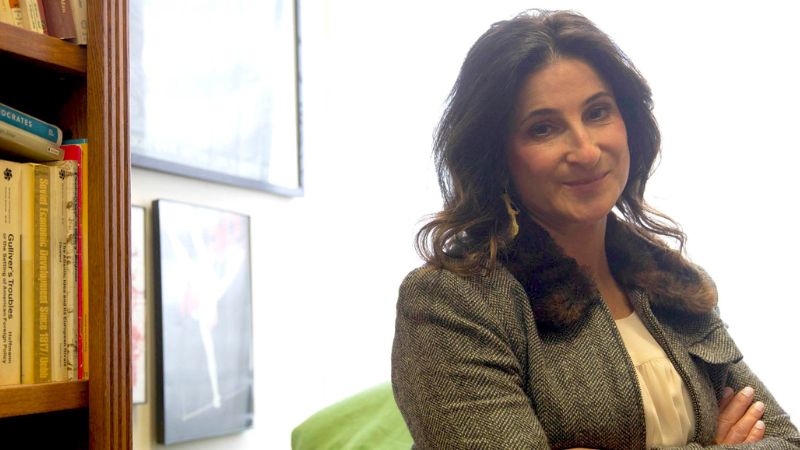
Katie Terezakis
Professor, Philosophy
Katie Terezakis
Professor, Philosophy
Education
BA, Central Connecticut State University and Heidelberg University (Germany); MA, Ph.D., New School for Social Research
Bio
Dr. Terezakis received her Ph.D. in Philosophy in 2004 from the New School for Social Research. Her research interests include German Idealism, Critical Theory, Aesthetics, and the Phenomenology of Language. She has published numerous articles and book chapters and is the author of The Immanent Word: The Turn to Language in German Philosophy, 1759–1801 (Routledge, 2007); the editor of Engaging Agnes Heller: A Critical Companion (Lexington Books, 2009), and the co-editor, with Jack Sanders, of Lukács’s Soul and Form (with a New Introduction by Judith Butler and an Afterword by Katie Terezakis) (Columbia University Press, 2010).
Most recently, Professor Terezakis received the Provost’s Excellence in Faculty Mentoring Award (2018); the Eisenhart Award for Outstanding Teaching (2015); the John William Miller Fellowship (2011); and the Paul A. and Francena L. Miller Fellowship (2010).
Select Scholarship
John William Miller Fellowship Fund
Amount: $45,000
Currently Teaching
In the News
-
November 9, 2022

RIT’s College of Liberal Arts receives grant to enhance philosophy and communication offerings
RIT’s College of Liberal Arts plans to introduce new and revamped philosophy and communication curricula to help students across the university enhance their expressive and analytic communication skills. This was made possible by a $350,000 grant from the National Endowment for the Humanities and The Teagle Foundation.
-
November 12, 2019

A gathering of feminist pragmatists
The Rochester Beacon talks to Katie Terezakis, professor of philosophy, about the 2019 Feminist-Pragmatist Philosophy Colloquium.
Featured Work
Exploring Idealism in Modern Philosophy with a New Fellowship
Katie Terezakis
Professor Katie Terezakis of RIT's Philosophy Department receives the prestigious John William Miller Fellowship, allowing her to focus on completing her book that explores the relevance of Idealism...



